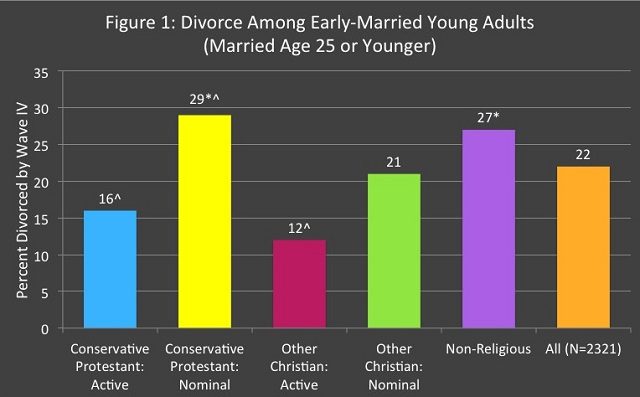
This is an installment of my series of replies to an article by Dr. David Madison: a pastor in the Methodist Church for nine years, who has a PhD in Biblical Studies from Boston University. It’s called, “Things We Wish Jesus Hadn’t Said” (Debunking Christianity, 7-21-19). His words will be in blue below. Dr. Madison makes several “generic” digs at Jesus and Christianity, in the written portion (it details a series of 12 podcasts):
A challenge for Christians: If you’re so sure Jesus existed, then you have some explaining to do. A major frustration is that, while believers are indignant at all the talk about Jesus not existing, they don’t know the issues that fuel the skepticism—and are unwilling to inform themselves.
Yes, I’m up to the “challenge.” No problem at all. I’m not threatened or “scared” by this in the slightest. It’s what I do, as an apologist. The question is whether Dr. Madison is up to interacting with counter-critiques? Or will he act like the voluminous anti-theist atheist polemicist Bob Seidensticker?: who directly challenged me in one of his own comboxes to respond to his innumerable attack-pieces against Christianity and the Bible, and then courageously proceeded to utterly ignore my 35 specific critiques of his claims as of this writing. We shall soon see which course Dr. Madison will decide to take. Anyway, he also states in his post and combox:
[S]o many of the words of Jesus are genuinely shocking. These words aren’t proclaimed much from the pulpit, . . . Hence the folks in the pews have absorbed and adored an idealized Jesus. Christian apologists make their livings refiguring so many of the things Jesus supposedly said.
The gospels are riddled with contradictions and bad theology, and Jesus is so frequently depicted as a cult fanatic—because cult fanatics wrote the gospels. We see Jesus only through their theological filters. I just want to grab hold of Christian heads (standing behind them, with a hand on each ear) and force them to look straight ahead, unflinchingly, at the gospels, and then ask “Tell me what you see!” uncoached by apologist specialists, i.e., priests and pastors, who’ve had a lot of practice making bad texts look good. . . . I DO say, “Deal with the really bad stuff in the gospels.” Are you SURE you’ve not make a big mistake endorsing this particular Lord and Savior? That’s the whole point of this series of Flash Podcasts, because a helluva lot of Christians would agree, right away, that these quotes are bad news—if no one told then that they’ve been attributed to Jesus.
Of course, Dr. Madison — good anti-theist atheist that he is — takes the view that we are not at all sure whether Jesus in fact said anything recorded in the Gospels in the first place. I don’t play that game, because there is no end to it. It’s like trying to pin jello to the wall. The atheist always has their convenient out (when refuted in argument about some biblical text) that Jesus never said it anyway [wink wink and sly patronizing grin], and/or that the biblical text in question was simply added later by dishonest ultra-biased Christian partisans and propagandists. It’s a silly and ultimately intellectually dishonest game, and so I always refuse to play it with atheists or anyone else, because there is no way to “win” with such an absurdly stacked, purely subjective deck.
In my defense of biblical texts, I start with the assumption that the manuscripts we have are quite sufficient for us to know what is in the Bible (believe it or not). Going on from there, I simply defend particular [supposedly “difficult”] texts, and note with appropriate argumentation, that “here, the Bible teaches so-and-so,” etc. I deal with the texts as they exist. I don’t get into the endlessly arbitrary, subjective games that atheists and theologically liberal biblical skeptics play with the texts, in their self-serving textual criticism.
Dr. Madison himself (fortunately) grants my outlook in terms of practical “x vs. y” debate purposes: “For the sake of argument, I’m willing to say, okay, Jesus was real and, yes, we have gospels that tell the story.” And in the combox: “So, we can go along with their insistence that he did exist. We’ll play on their field, i.e., the gospels.”
Good! So we shall examine his cherry-picked texts and see whether his interpretations of them can stand up to scrutiny. He is issuing challenges, and I as an apologist will be dishing a bunch of my own right back to him. Two can play this game. I will be dealing honestly with his challenges. Will he return the favor, and engage in serious and substantive dialogue? Again, we’ll soon know what his reaction will be. A true dialogue is of a confident, inquisitive, “nothing to fear and everything to gain” back-and-forth and interactive nature, not merely “ships passing in the night” or what I call “mutual monologue.”
*****
Dr. Madison’s 12th podcast of twelve is entitled: “On Luke 9:59-62, Jesus’ rude retort, ‘Let the dead bury their dead’ “. Here is the passage:
Luke 9:59-62 (RSV) To another he said, “Follow me.” But he said, “Lord, let me first go and bury my father.” [60] But he said to him, “Leave the dead to bury their own dead; but as for you, go and proclaim the kingdom of God.” [61] Another said, “I will follow you, Lord; but let me first say farewell to those at my home.” [62] Jesus said to him, “No one who puts his hand to the plow and looks back is fit for the kingdom of God.”
The negatives about Jesus in the Gospels are ignored. . . . The Gospel writers . . . were cult propagandists. . . . Of course, cults don’t want you to say farewell to your family. That would indicate divided loyalty. We can be sure that this Jesus script was invented by Luke because it’s not found in Matthew’s version of the story.
The same thought is found in Matthew:
Matthew 8:19-22 And a scribe came up and said to him, “Teacher, I will follow you wherever you go.” [20] And Jesus said to him, “Foxes have holes, and birds of the air have nests; but the Son of man has nowhere to lay his head.” [21] Another of the disciples said to him, “Lord, let me first go and bury my father.” [22] But Jesus said to him, “Follow me, and leave the dead to bury their own dead.”
Does that mean that now it isn’t “invented” because Matthew has it, too?
Even when I was a kid, I thought [this] was a terrible thing to say. . . . Why aren’t Christians bothered — I mean, really upset — by such nasty words? C’mon! It’s really mean to say, let someone else bury your father. . . . Are the good things good enough to cancel out all the bad stuff he’s said, or that the Gospel writers invented?
Dr. Madison seems to think this is some sort of silver bullet, since he has now done some variation of the [supposed] “hostility to family and wife” polemic now four times (installments one, four, five, and twelve [this current one] ). It takes up fully a third of his series thus far. He loves to insinuate that this is all fanatic cult-like behavior: to separate initiates from their previous strongest allegiance of family. People who do that are wacko, extremist nuts — so Dr. Madison reasons — ; therefore, Jesus is also a nut (or those who supposedly invented Him). I’ve thoroughly answered the charge, and it is seen over and over that there is nothing to it (it’s simply non-literal literary devices), but we’ll provide a bit more now, at no extra charge.
Catholic apologist Phillip Campbell writes on his Unam Sanctam Catholicam site (7-30-18):
The issue revolves around the Jewish practice of “second burial” common in Palestine in Jesus’ time. In Jesus’ time, after a Jewish person had died, he would be immediately interred in the family burial cave or plot. The immediate period of mourning was seven days (shi’va), followed by a less intense mourning period of 30 days, called shloshim. However, the mourning period was not totally concluded until all the flesh had rotted off the body. This process usually took a year. At that time, the bones would be gathered and re-internment, or “second burial” (likkut aẓamot) would take place. The bones would be gathered together, placed in an ossuary (small chest-like container) and re-interred.
If the phrase “let me first go and bury my father” refers to this custom, then the man is asking Jesus for time to wait for the year-long likkut azamot mourning period to end so he can re-inter his father. Jesus essentially tells him, “You have already buried your father in the family tomb and honored him. There are others who can see to technicality of the re-internment.” . . .
[This] view has the benefit of taking into account Jewish burial customs has practiced in Jesus’ own day. It makes sense of Jesus’ objection; I noted above Jesus’ objection doesn’t make a lot of sense if the man is only asking for a few hours. But if the passage is referring to second burial, he could be asking for as much as 12 months leave, in which case it makes a lot more sense why Christ would object. The father is already buried in the family tomb with the remains of all the other family members; when Jesus says, “Let the dead bury their own dead,” he’s essentially making a joke, saying, “Your dad’s bones aren’t going anywhere. They are safe in the family tomb with all your other ancestors. I’m sure they’ll keep him company”; in other words, “Let the dead (your other ancestors in the family tomb) take care of your father’s bones until someone else in the family shows up to bury them.”
Gordon Franz (Archaeology and Biblical Research 5/2 [1992] 54-58) examines and exegetes the text in even greater detail, along the same lines; mentioning relevant scholarly articles and related Bible passages:
In the first century, when a person died, they normally were taken and buried immediately in the family burial cave that had been hewn out of bedrock. [For the archaeology of Jewish tombs during the New Testament period, see Rahmani 1958, 1961, 1982a]. This custom is based on the injunction found in the Mosaic Law, not to leave the corpse on an executed person on the tree overnight (Deut. 21:22-23). Two examples of immediate burials are found in the New Testament: Jesus (John 19:31) and Ananias and Sapphira (Acts 5:6-10).
Immediately after the burial, the family would separate itself and mourn for seven days. This mourning period was called shiv’ah. It would have been impossible for the disciples to make their request if their father had just died. If they were the eldest sons, they were obligated by custom to immediately bury their fathers. . . . the disciples would have been acting contrary to normal first-century Jewish burial practices.
An Interpretation Based on First-Century Jewish Burial Practices
McCane suggests an interpretation that is consistent with first-century Jewish burial practices (1990:40-41). After a body was placed in a burial cave, it was left to decompose. The family mourned for seven days. This initial mourning period was followed by a less intense 30-day period of mourning, called shloshim. However, the entire mourning period was not fully over until the flesh of the deceased had decomposed, usually about a year later. The Jerusalem Talmud states: When the flesh had wasted away, the bones were collected and placed in chests (ossuaries). On that day (the son) mourned, but the following day he was glad, because his forebears rested from judgment (Moed Qatan 1:5).
The final act of mourning, the gathering of the bones into a bone box called an ossuary, was called “ossilegium,” or “secondary burial.” It is this act, I believe, that is in view in our Lord’s response. [For a good discussion of secondary burials, see Meyers 1971; Rahmani 1981. On ossuaries, see Rahmani 1982b]. The disciples’ request and Jesus’ response makes good sense in light of the Jewish custom of secondary burial. When the disciples requested time to bury their fathers they were actually asking for time to finish the rite of secondary burial. Their father had died, been placed in the family burial cave, and the sons had sat shiv’ah and most likely shloshim. They had requested anywhere from a few weeks to up to 11 months to finish the ritual of ossilegium before they returned to Jesus.
Jesus’ sharp answer also fits well with secondary burial. The fathers had been buried in the family burial caves and their bodies were slowly decomposing. In the tombs, along with the fathers, were other family members who had died, some awaiting secondary burial, others already placed in ossuaries. When Jesus stated: “Let the dead bury their own dead,” He was referring to two different kinds of dead in the tomb: the bones of the deceased which had already been neatly placed in ossuaries and the fathers who had yet to be reburied. The phrase “own dead” indicates that the fathers were included among the dead.
[. . .]
The Reason for Jesus’ Response
Why would Jesus respond in a seemingly harsh manner? The purpose of His response may have been twofold. The first purpose was to encourage the disciples to faithfully follow Him. The second purpose and perhaps more importantly, was to teach correct theology.
The concept of gathering the bones of one’s ancestors is deeply embedded in the Hebrew Scriptures and reflected in Israelite burial practices (Gen. 49:29; Judges 2:10; 16:31; I Kings 11:21, 43, etc.). However, by New Testament times, the concept had taken on a new meaning. According to the Rabbinic sources, the decomposition of the flesh atoned for the sins of the dead person (a kind of purgatory) and the final stage of this process was gathering the bones and placing them in an ossuary (Meyers 1971: 80-85). Jesus confronts this contrary theology. Only faith in Christ’s redemptive work on the cross can atone for sin, not rotting flesh or any other work or merit of our own (Heb. 9:22, 26; Acts 4:12; Eph. 2:8, 9). Jesus may have rebuked these two disciples rather harshly because they were following the corrupted practice of secondary burial.
Conclusion
An amplified (interpretive) rendering of this statement might be: Look, you have already honored your father by giving him a proper burial in the family sepulcher. Now, instead of waiting for the flesh to decompose, this can never atone for sin, go and preach the Kingdom of God and tell of the only true means of atonement, faith alone in Christ. Let the bones of you dead father’s ancestors gather his bones and place them in an ossuary. You follow me! This interpretation allows for Jesus to have upheld the fifth commandment, takes the text at face value, and does justice to the Jewish burial practices of the first century. The interpretation is therefore consistent theologically, Biblically, and historically, and answers the critics accurately.
Bibiography
McCane, B.
1990 “Let the Dead Bury Their Own Dead”: Secondary Burial and Matt. 8:21-22. Harvard Theological Review 83:31-43.
Meyers, Eric
1971 Jewish Ossuaries: Reburial and Rebirth. Rome: Biblical Institute.
Rahmani, Levi
1958 A Jewish Tomb on Shahin Hill, Jerusalem. Israel Exploration Journal 8: 101-105.
1961 Jewish Rock-Cut Tombs in Jerusalem. Atiqot 3: 93-120.
1981 Ancient Jerusalem’s Funerary Customs and Tombs: Part One. Biblical Archaeologist 44: 171-177.
1982a Ancient Jerusalem’s Funerary Customs and Tombs: Part Three. Biblical Archaeologist 45: 43-53.
1982b Ancient Jerusalem’s Funerary Customs and Tombs: Part Four. Biblical Archaeologist 45: 109-119.
***
Photo credit: Ian Scott (5-21-09). First-century CE Jewish ossuaries at the Dominus Flevit church on the Mount of Olives. . . . An ossuary is a stone box that would hold the bones of a deceased person after they had been in a tomb long enough that the flesh had decayed. . . . During the Hellenistic and Roman periods [there was a] secondary burial in individual ossuaries that would be placed in any available corners around the tomb. [Wikimedia Commons / Creative Commons Attribution-Share Alike 2.0 Generic license]
***



























